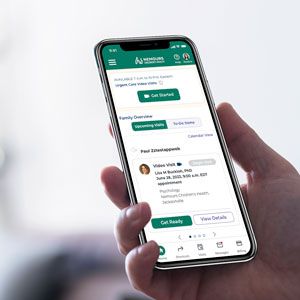Consent for Treatment
When You Need Consent for Treatment at Nemours Children's
In general, parental consent is required to provide medical treatment of children. States have traditionally recognized the right of parents to make health care decisions for their children, based on the presumption that before reaching the age of majority (normally at age 18), children lack the judgment and maturity to make fully-informed decisions.
This means parents are considered the “natural guardians” of their children, and it’s assumed that parents will make treatment decisions in their child’s best interests. Occasionally, a court will appoint another person to act as the “legal guardian” or “legal custodian” of a child with similar parental authority allowing them to make medical treatment decisions.
Nemours strives to obtain consent for medical treatment from a minor’s parent/legal guardian in every case and we anticipate that the parent or legal guardian is with the child at every visit.
However, we understand that many minor children live with and are well cared for by extended family members or others. In these cases, a minor child may not be accompanied by a parent or legal guardian, and we may be unsuccessful at getting consent from a parent or legal guardian.
State Laws for Parental Consent
Nemours looks to the law of the state where the child is seeking medical treatment to determine if a person who is not the parent or legal guardian has the authority to make medical decisions on their behalf. In general, the states rule as follows:
Florida
If the parent or legal guardian cannot be reached, the following people have the authority to consent for treatment of a minor child, in order of priority:
- Adult with power of attorney to provide medical consent for the minor
- Stepparent
- Grandparent
- Adult brother or sister
- Adult aunt or uncle
Delaware
If the parent or legal guardian cannot be reached, an adult relative with a Caregiver’s Medical Authorization affidavit may consent for treatment of a minor child. To get a form, call your local Delaware Service Center, Public Health Clinic, the Division of Aging and Adults with Physical Disabilities, or the child’s school district office.
Pennsylvania
If the parent or legal guardian cannot be reached, an adult relative or family friend possessing a Medical Care Authorization may consent for treatment of a minor child. A sample authorization form is contained in Purdon's Pennsylvania Statutes and Consolidated Statutes, Title 11, Chapter 21, 2513.
New Jersey
If the parent or legal guardian cannot be reached, an adult who has care and control of the child and has written authorization may consent for treatment of a minor child.


